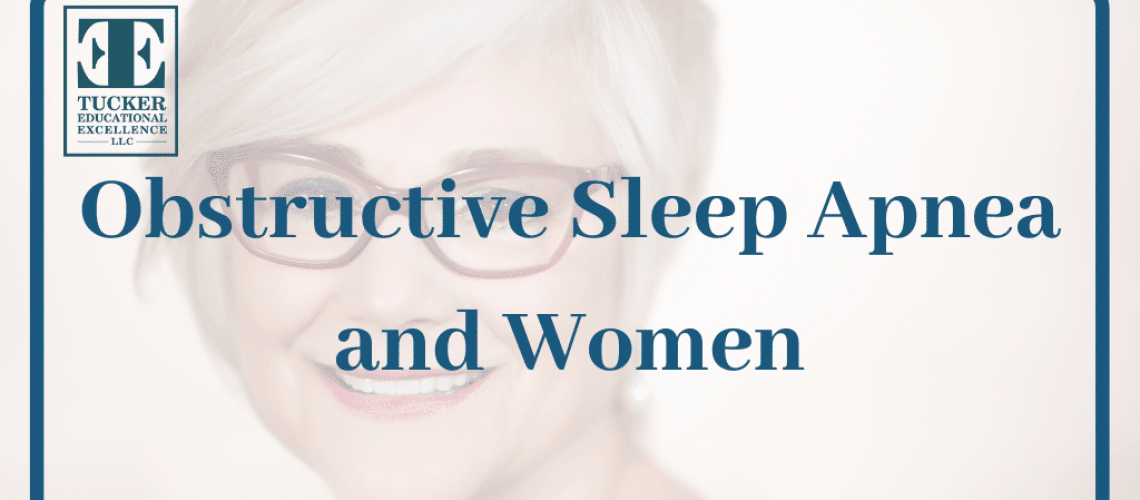
Did you know that women present OSA symptoms differently than men do? Current estimates suggest that men may be 2 or 3 times as likely to experience sleep apnea as women—but this gap actually narrows as women age – becoming a 1:1 ratio. Since screening and diagnosis are still so poor among women, a lot of today’s estimates are likely to be lower than reported. Oftentimes, women are misdiagnosed with other conditions, based on how they manifest unusual symptoms of OSA. Today we are going to focus on women, and the unique OSA symptoms they present.
Let’s talk about your current patient population. Assuming you’re taking notes of medical and medication history – do you find women in your practice who report the following?
-Perimenopause
-Menopause
-Polycystic Ovary Syndrome (PCOS)
-Symptoms of Restless Leg Syndrome
If you have women in your dental practice who present any of the above syndromes and conditions, we encourage you to take a closer look and ask deeper-rooted questions about current and past medical history. A sleep test will determine their severity of OSA, and a treatment plan may then be discussed.
As mentioned above, many women get misdiagnosed with other conditions or diseases, when in fact, they would benefit from OSA treatment. Many OSA symptoms that doctors tend to miss or misdiagnose in women are:
– Depression
– Anxiety
– Thyroid conditions, including hypothyroidism
– Fibromyalgia
– Insomnia
– Prediabetes/diabetes
– Obesity
– High blood pressure
– Changes to dreaming
– Heartburn at night
– Feeling irritable during the day
– Feeling regularly overwhelmed
– Feeling anxious or depressed
– A lack of energy, even after a full night of sleep
– Forgetfulness
– A tendency to be accident-prone
Consider having a different type of conversation with your female patients and ask detailed questions about medical history. This conversation could help to identify women in your practice who suffer from undiagnosed OSA.
(References – Psychology Today, The Sleep Doctor)
All Rights Reserved. Tucker Educational Excellence, LLC. ©
Designed With ♥ By 239WEB.com